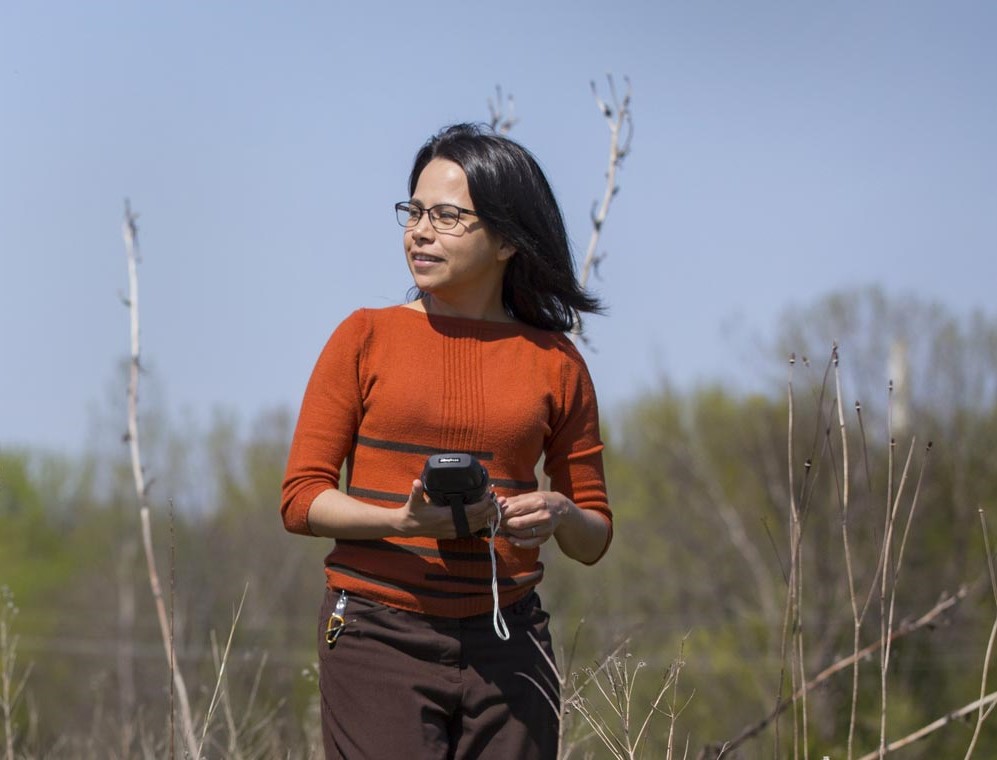UW-Whitewater
Associate Professor
Geography, Geology, and Environmental Science
 Dr. Rocio R. Duchesne-Onoro is an Associate Professor in the Geography, Geology, and Environmental Science Department at the University of Wisconsin–Whitewater. She has a diverse academic background, having received a bachelor’s of science in biology, a master’s of science in statistics, and a doctorate in environmental management. Dr. Duchesne-Onoro employs remote sensing and machine learning algorithms as tools to understand patterns in terrestrial ecosystems. Her research interests span from shrub encroachment in the Arctic to urban vegetation characterization and crop health assessment in Wisconsin. She enjoys teaching and appreciates mentoring undergraduate students in research.
Dr. Rocio R. Duchesne-Onoro is an Associate Professor in the Geography, Geology, and Environmental Science Department at the University of Wisconsin–Whitewater. She has a diverse academic background, having received a bachelor’s of science in biology, a master’s of science in statistics, and a doctorate in environmental management. Dr. Duchesne-Onoro employs remote sensing and machine learning algorithms as tools to understand patterns in terrestrial ecosystems. Her research interests span from shrub encroachment in the Arctic to urban vegetation characterization and crop health assessment in Wisconsin. She enjoys teaching and appreciates mentoring undergraduate students in research.
TEACHING AND LEARNING PHILOSOPHY
One pillar of my teaching philosophy is that professors should be mentors. I know that students look for role models, professors just like them, who share their struggles and can inspire them to achieve their goals. Unfortunately, students often cannot find that kind of mentor in their college, let alone in their department. As a result, some students, specifically those from underrepresented backgrounds, struggle to succeed. When I came into teaching, one of my goals was to become a mentor and role model, especially to females and students from minoritized backgrounds. I desire to increase the representation of underserved students in STEM fields and empower them to conquer their fears and overcome the barriers in their environment.
Concerning my learning philosophy, one pillar is that productive struggle is essential to learning. Setting the environment and allowing the students to work through a problem and come to their conclusions helps them develop resilience and critical thinking skills. I believe instructors should hold students to high standards. As the students struggle to achieve the bar, the professor supports them. I see failures and mistakes as learning opportunities that foster a growth mindset in students.
